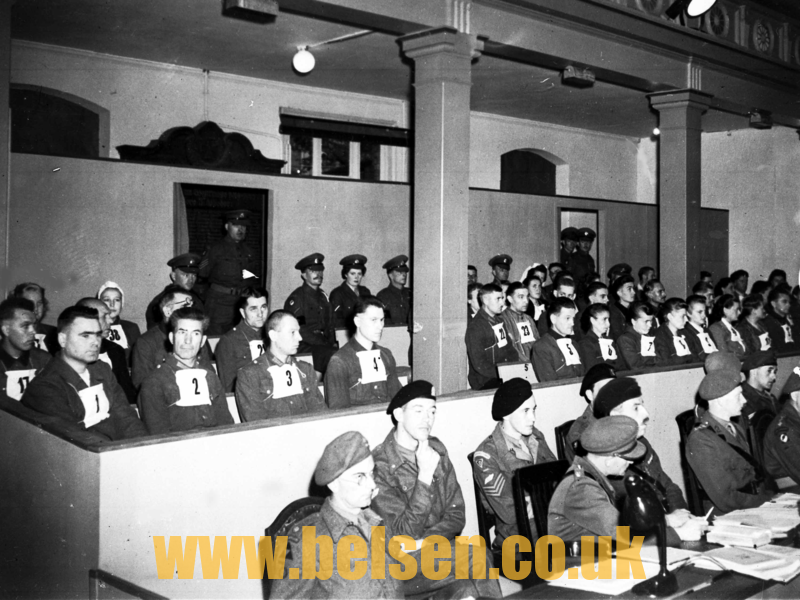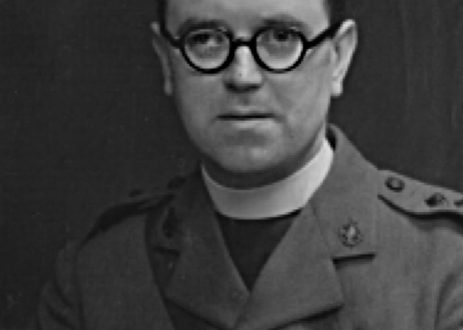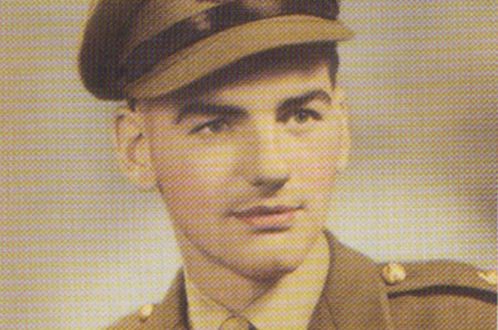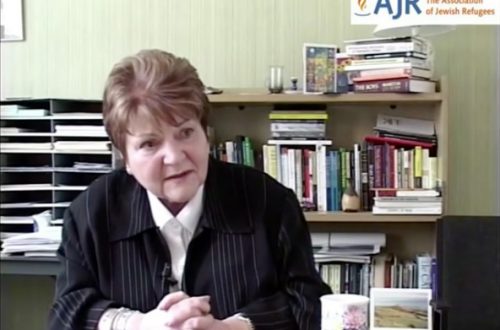
The Perpetrators at Belsen
At least 480 people, including around 45 women, had worked at the Bergen-Belsen concentration camp as guards or members of the headquarters staff. Very few ever had to answer for their crimes before a court of law.
The first Belsen Trial, which was held before a British military tribunal in Lüneburg in the autumn of 1945, received the most public attention. Since many of the defendants had worked at the Auschwitz concentration and extermination camp prior to their deployment to Bergen-Belsen, the court decided to also try them for the crimes they committed there.
Denazification proceedings were carried out between 1947 and 1949 against former members of the Bergen-Belsen concentration camp staff, but the German judiciary only instituted proceedings related to crimes committed at Bergen-Belsen on one occasion.
No Wehrmacht soldiers ever stood trial in a German court for the crimes they committed against Soviet POWs in the Bergen-Belsen camps. Two preliminary proceedings were instituted against members of the Hamburg Gestapo for their participation in selecting POWs to be murdered at the Sachsenhausen concentration camp, but these proceedings were discontinued in 1970 and 1971.
The Belsen Trial
Immediately after the Bergen-Belsen concentration camp was liberated, the British military authorities began to investigate the crimes committed there. From 17 September to 17 November 1945, 44 men and women were tried by a British military tribunal in Lüneburg.
The defendants consisted of former camp commandant Josef Kramer as well as 16 other SS men, 16 female SS guards and 11 former prisoner functionaries. They were tried according to British military law and were charged solely with war crimes. By contrast, the main war criminals tried by the International Military Tribunal in Nuremberg in 1946 were also charged with crimes against humanity and crimes against peace.
Well over one hundred journalists from Germany and abroad reported extensively on the proceedings in Lüneburg. They informed the public not only about the mass deaths in Bergen-Belsen, but also about the gassings in Auschwitz-Birkenau. After two months of intensive witness interrogations, the judges sentenced 11 of the defendants to death, including Josef Kramer, head female guard Elisabeth Volkenrath and the last camp doctor Fritz Klein. They were executed on 13 December 1945 at the prison in Hamelin.
Fourteen of the defendants were acquitted by the tribunal, and the rest were given prison sentences of between one and 15 years. However, most of these sentences were substantially reduced following appeals or pleas for clemency. Nine more members of the Bergen-Belsen camp personnel were tried by two other military tribunals in 1946 and 1948.
German Proceedings
So-called denazification courts were set up at the directive of the Allies to try people who had been members of the Gestapo, the SS or other criminal organisations. Between 1947 and 1949, proceedings were initiated against at least 46 former members of the Bergen-Belsen guard squads and headquarters staff. Nearly half of these proceedings were discontinued. In 16 cases, the defendants were sentenced to between 120 days and two and a half years in prison or they were fined. However, the judges declared that since these defendants had been interned by the Allies for years in most cases, their prison terms had already been served in full.
Only one German court case was held relating to crimes committed at Bergen-Belsen. This trial held before the Jena district court in 1949 ended with the acquittal of a former SS-Unterscharführer. No other trials relating to Bergen-Belsen were ever carried out in either West or East Germany, and the few investigations initiated by the public prosecutor’s office in Lüneburg were eventually discontinued.
More than 200 SS members from Bergen-Belsen who are known by name never had to stand trial.
https://bergen-belsen.stiftung-ng.de
6,071 total views



